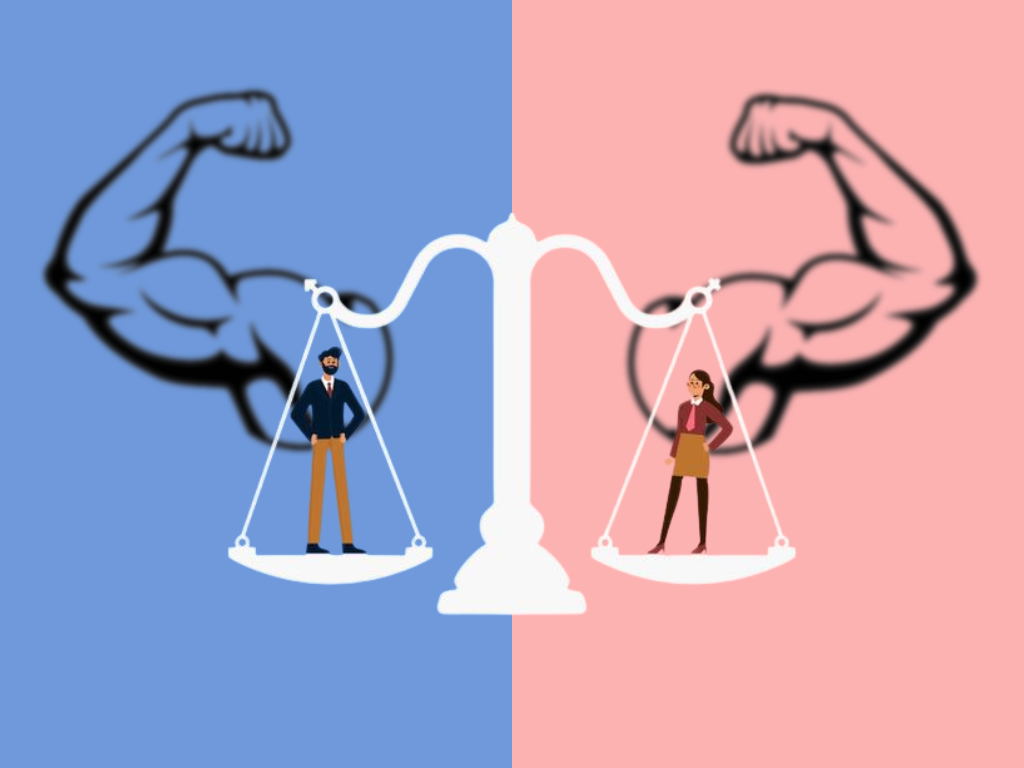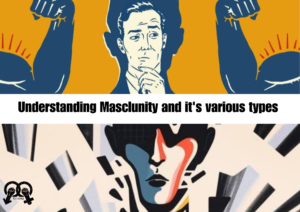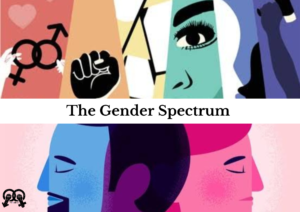Introduction:
Feminist development initiatives have been instrumental in advancing women’s rights and striving for gender equality across the globe. However, in the pursuit of creating a more equitable society, it is crucial to acknowledge that gender equality is not solely a women’s issue. Men and masculinities play a significant role in shaping societal norms, gender dynamics, and power structures. To achieve lasting and sustainable change, it is essential to engage men as allies in feminist development initiatives. This article delves into the multifaceted aspects of men’s involvement in these efforts, exploring how redefining masculinity and promoting positive behaviours can foster inclusive and effective approaches to achieving gender equality and social justice.
Hegemonic Masculinity and its Impact
Traditional notions of masculinity, often referred to as hegemonic masculinity, have historically dominated social expectations and norms. These rigid gender roles perpetuate power imbalances and reinforce patriarchy, hindering progress towards gender equality. The pressure to conform to these expectations can result in harmful behaviours, such as aggressive dominance and the subjugation of women. Recognizing the impact of hegemonic masculinity is essential in understanding the obstacles faced in achieving feminist development goals.

Unpacking Masculinities
Men’s identities and expressions of masculinity are diverse and multifaceted. Understanding that masculinity is not monolithic is a crucial step towards redefining gender norms. There are various forms of positive masculinity, including caring, empathetic, and nurturing qualities that can contribute to promoting gender equality. Feminist development initiatives should aim to challenge harmful aspects of masculinity while celebrating and encouraging positive expressions of male identity. Men can be powerful allies in the feminist movement by actively supporting and promoting gender equality. Here are some key ways they can contribute to the cause:
- Educate Themselves: Men can start by educating themselves about feminist theories, the history of the feminist movement, and the systemic issues women face. This involves reading feminist literature, attending workshops or talks, and engaging in conversations with women about their experiences.
- Listen and Learn: It is essential for men to actively listen to women’s voices and perspectives. By being receptive and empathetic, they can gain a deeper understanding of the challenges women encounter daily due to gender inequality.
- Challenge Toxic Masculinity: Men should confront harmful aspects of traditional masculinity that perpetuate gender inequality, such as aggression, dominance, and emotional suppression. Embracing a more compassionate, non-violent, and emotionally expressive form of masculinity can create a positive impact.
- Amplify Women’s Voices: Men can use their privilege and platforms to amplify women’s voices and advocate for their rights. This entails stepping back and making space for women to speak, ensuring credit is given where due, and supporting women’s leadership in all spheres.
- Confront Sexism and Misogyny: Men should actively call out sexist behaviours and attitudes, both in themselves and in others. This includes challenging casual sexism, offensive jokes, and harmful stereotypes that perpetuate gender discrimination.
- Share Domestic Responsibilities: Men can contribute to gender equality at home by actively sharing domestic and caregiving responsibilities equally with their partners. This promotes work-life balance and allows women to pursue their career aspirations.
- Stand Against Violence: Men should actively support efforts to prevent and address gender-based violence. This includes speaking out against violence, supporting survivors, and participating in campaigns to end violence against women.
- Advocate for Equal Opportunities: Men can use their influence to support policies and initiatives that promote gender equality in the workplace, education, and public life. This includes advocating for equal pay, parental leave, and opportunities for women to advance in their careers.
- Engage Other Men: Men can play a crucial role in challenging and educating their male peers about gender equality. By engaging other men in discussions and setting a positive example, they can create a ripple effect of positive change.
- Be Open to Feedback: Men should be open to feedback and criticism from women, recognizing that their experiences and perspectives may differ. Constructive criticism can be an opportunity for personal growth and learning.
Men can be effective allies in the feminist movement by actively supporting and promoting gender equality. By challenging traditional gender norms, amplifying women’s voices, confronting sexism, and advocating for equal opportunities, men can contribute to creating a more equitable and inclusive society for all genders. It is essential for men to be humble, open-minded, and willing to learn from women’s experiences and perspectives in their journey towards becoming better allies. Feminist development studies should not alienate the psychosocial behavioural modification of men in their research.
Engaging Men in Feminist Development Initiatives
Men can become powerful allies in the fight for gender equality when actively engaged in feminist development initiatives. Including men in these efforts creates a shared responsibility for creating a more equitable society. By acknowledging men as partners rather than adversaries, it fosters a collaborative approach that benefits everyone. This involvement can be through grassroots campaigns, educational programs, or policy advocacy.

Men as Advocates for Gender Equality
Men have a pivotal role to play in advocating for gender equality, both in their personal lives and in their communities. Men who are actively involved in supporting women’s rights can influence and challenge other men’s attitudes and behaviours. These male advocates can challenge the norms of toxic masculinity and promote a more inclusive and respectful society.
Addressing Gender Socialization from Childhood
Gender socialization begins in childhood and plays a significant role in shaping individuals’ beliefs and attitudes towards gender roles. To create lasting change, feminist development initiatives must address gender socialization from an early age. This involves challenging traditional stereotypes and promoting equitable upbringing that allows all children, regardless of gender, to explore their full potential without limitations.
Men’s Involvement in Violence Prevention
Engaging men in violence prevention efforts is crucial in creating safer environments for all genders. Men are often the perpetrators of violence, particularly against women and marginalized groups. By involving men in anti-violence initiatives, we can challenge harmful behaviours and promote healthy, non-violent relationships.
Encouraging Equal Parenting and Caregiving
Gender equality also extends to parenting and caregiving responsibilities. Encouraging men to take an active role in parenting and caregiving challenges traditional gender norms and fosters a more balanced distribution of labour within families. This allows women to participate fully in the workforce and pursue their career aspirations.
Men’s Health and Reproductive Rights
Feminist development initiatives should also include men in discussions about health and reproductive rights. In many societies, decisions regarding family planning and reproductive health have primarily been seen as women’s responsibilities. By involving men in these conversations, we can promote shared decision-making and empower individuals to make informed choices.
Challenges and Opportunities
Engaging men in feminist development initiatives does come with challenges. Resistance from some men who fear losing privileges or power in an equitable society can hinder progress. Additionally, there is a risk of co-opting feminist movements, where men may dominate or shift the focus away from women’s rights. These challenges emphasize the need for careful navigation of power dynamics and the importance of centring women’s voices in these efforts.
However, the opportunities presented by involving men in feminist development initiatives are immense. By challenging traditional masculinity, promoting positive behaviours, and encouraging allyship, we can create a more inclusive and supportive environment for all genders. Men can be powerful advocates for gender equality and contribute significantly to transforming societies.

Recommendations for Inclusive Feminist Development
To implement inclusive feminist development initiatives, several recommendations can be adopted:
- Create spaces for open dialogues about masculinity and gender norms to challenge harmful behaviours.
- Develop educational programs that promote positive expressions of masculinity and foster empathy and respect for all genders.
- Engage men in campaigns against gender-based violence, encouraging them to take an active role in prevention efforts.
- Advocate for equal parenting rights and support programs that encourage men to take an active role in caregiving and household responsibilities.
- Develop policies and programs that recognize men’s reproductive rights and encourage shared decision-making in family planning.
- Work towards a society where men are actively involved in advocating for women’s rights and gender equality.
Conclusion
Feminist development initiatives have made significant strides in advancing gender equality, but to create a more inclusive and sustainable future, men’s involvement is essential. By challenging traditional notions of masculinity and promoting positive expressions of male identity, men can become powerful allies in dismantling patriarchy and promoting gender equality. By acknowledging the role of men and masculinities in these initiatives, we take a critical step towards building a more equitable and just society for all genders. Embracing diversity and collaboration, we can forge a path towards a more inclusive and gender-equal world.
References
Kimmel, M. S. (2017). Healing from hate: How young men get into—and out of—violent extremism. University of California Press.
Connell, R. W. (1995). Masculinities. University of California Press.
Barker, G., & Ricardo, C. (2005). Young Men and the Construction of Masculinity in Sub-Saharan Africa: Implications for HIV/AIDS, Conflict, and Violence. World Bank.
Dworkin, S. L., & Colvin, C. (2012). Men at Risk: A Gender Approach to HIV/AIDS. Oxford University Press.
Edström, J., & Pande, R. (2018). How to turn on a feminist: Debates on gender equality in Swedish development aid. Feminist Economics, 24(1), 43-63.
Stern, E. (2018). Engaging Men and Boys in Gender Equality and Social Inclusion. Plan International.
UN Women. (2017). Men and Masculinities in a Gender-Equal Society. UN Women.
World Health Organization. (2010). Engaging men and boys in changing gender-based inequity in health: Evidence from programme interventions. WHO Press.
Wood, J. L., & Eagly, A. H. (2015). Two traditions of research on gender identity. Sex Roles, 73(11-12), 461-473.
Jewkes, R., Flood, M., & Lang, J. (2014). From work with men and boys to changes of social norms and reduction of inequities in gender relations: A conceptual shift in prevention of violence against women and girls. The Lancet, 385(9977), 1580-1589.
Authorship Credits
Kaushiki Ishwar (she/they) is a student at Miranda House pursuing History and Philosophy. Her research interests include feminist epistemology and its intersection with neoliberal cybernetic superstructures. Her favourite philosophers are Zizek, Gayatri Spivak, Judith Butler and Baudrillard.





